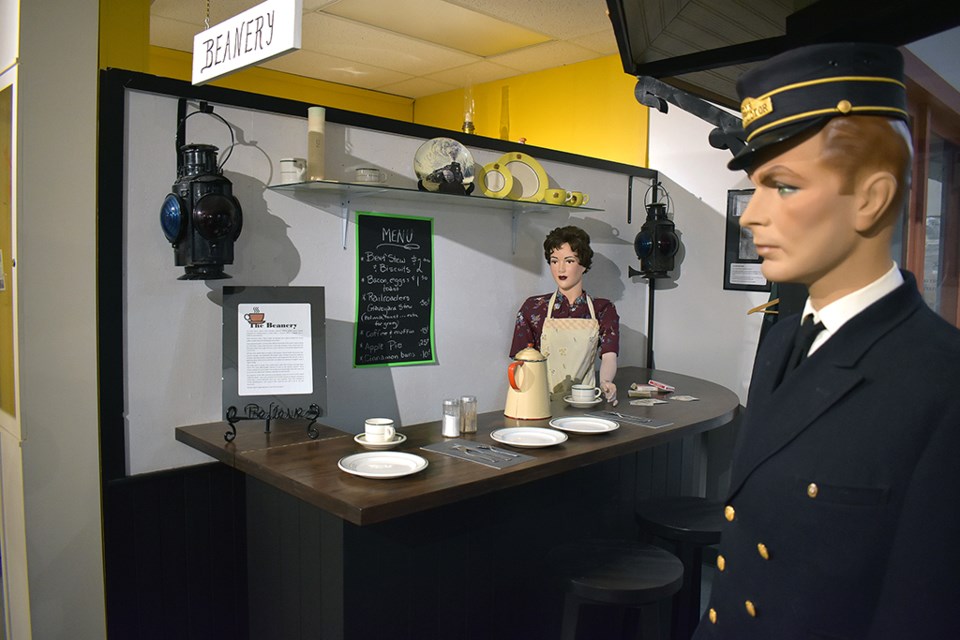BIGGAR — The Biggar Museum’s mandate is to preserve, protect, and present the history of Biggar and area, and the museum celebrating its 50th anniversary on Oct. 14. It opened in 1971 when then-Mayor Lloyd Hock asked a few history-minded community members, “How do you feel about opening a museum?” The Biggar museum was born.
Delta Fay Cruickshank is the public relations co-ordinator for the museum and says the museum is a staple in the community. They host art and yoga classes, display local art, sell local authors’ novels, hold silent Christmas auctions, and bring new art exhibits into their gallery every other month. Cruickshank offers tours of the museum and is happy to explain the many artifacts on display.
Biggar earned its name from Grand Trunk Pacific Railway solicitor, Willam H. Biggar. All of the rail executives travelled west by car, naming everything along the now-finished rail. Because Biggar is a division point between Wainwright and Watrous, he decided the town would be prosperous, so he named it after himself.
“During COVID, I got the chance to communicate closely with the curator of the Biggar museum in Biggar, Scotland,” Cruickshank said. After inquiring about the naming of Biggar’s European counterpart, she was informed that ‘biggar’ was a Norse word from the Vikings, meaning barley grown on a triangular field. “We have the second largest barley and malt plant in the world, and Palliser’s Triangle is in Saskatchewan. Even though the land can be arid, we’re still growing barley on it!
“At one time, there were close to 8,000 people in the RM of Biggar, and now there are less than 700. At one time, there was a family on every quarter section.”
The museum also has six volumes of family genealogy and a Biggar district and area research collection. They have a reproduction of the Biggar Majestic Theatre, with the original theatre seats and the original player piano used for the silent films between 1914 to 1930. Cruickshank added that the theatre hired people to change the music rolls included with the purchase of a film.
When asked about the infamous Biggar KKK exhibit, Cruickshank said, “We’re not racist, we feel that history is here to teach us, the good and the bad. And I like to think that we’ve evolved.”
In the late 1920s, J.J. Maloney moved to town and headed the western KKK division. He moved to Biggar due to the Catholic covenant.
“In the late 1920s, they [The KKK] were against the liberal government and immigration, blaming economic issues on Saskatchewan’s immigrants, which sounds an awful lot like today. During the great depression, he worked at the Roman Catholic Church … we’re all immigrants!” Cruickshank added.
However, not all history is good history. Lee Xiong (or Pete) ran Biggar’s laundromat and couldn’t afford to bring his family to Canada with him. Xiong went to the railway and waited for his family to come, rocking on his heels with his hands behind his back, but they never came. Xiong eventually fell ill and moved to North Battleford, and the museum was, fortunately, able to save some of his artifacts.
“At one point, the head tax was so high that people could have bought a penthouse in Manhattan with the money.” Some of the letters he’d sent home to his wife in China have been translated into English and are on display.
Cruickshank has been working at the museum since 2013, and she recounted a time when the VIA rail was nine hours late on a cold, rainy June day, and people were wandering around Biggar. Cruickshank invited them inside, brought them cookies, and made them coffee while they played the piano and danced in the lobby.
The Biggar Museum will have a re-opening ceremony on Oct. 14 in tandem with a downtown street fair with an expected attendance of 500-600 people. Biggar Mayor Jim Rickwood and his mother, the only surviving original board member for the museum, will be cutting the ribbon after a speech from Cruickshank. Local Biggar families have matched up to $2.5 million for town revitalization projects and are excited to welcome as many people as possible in October.



